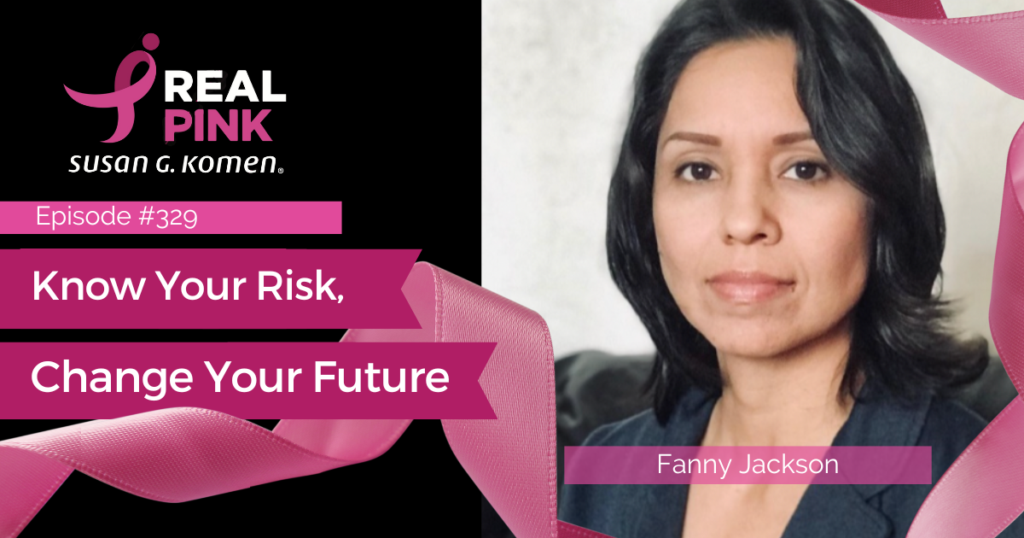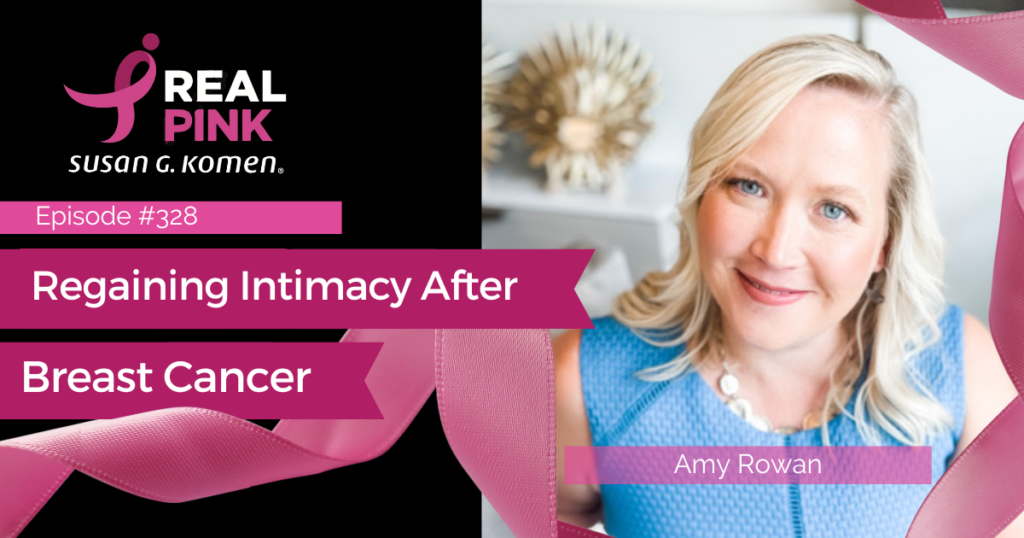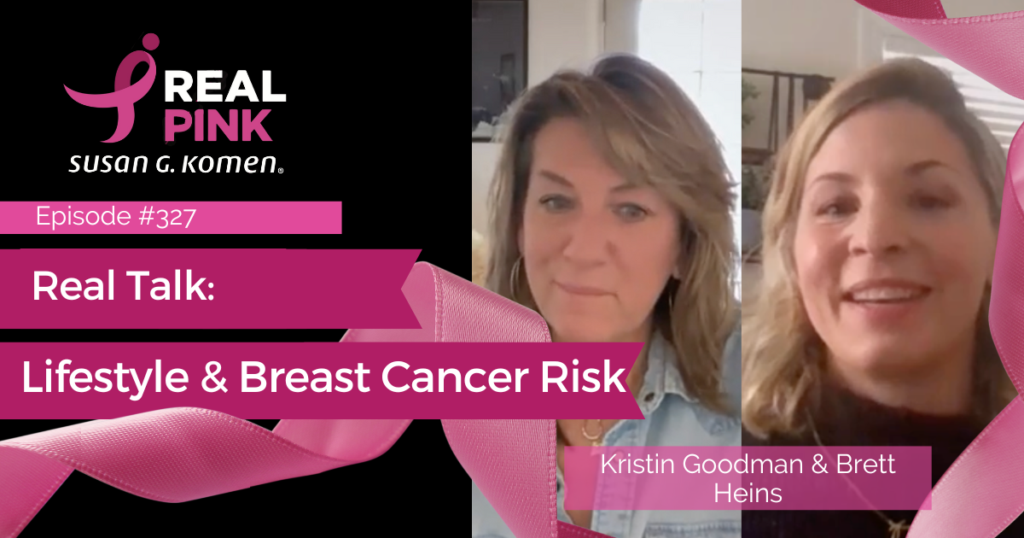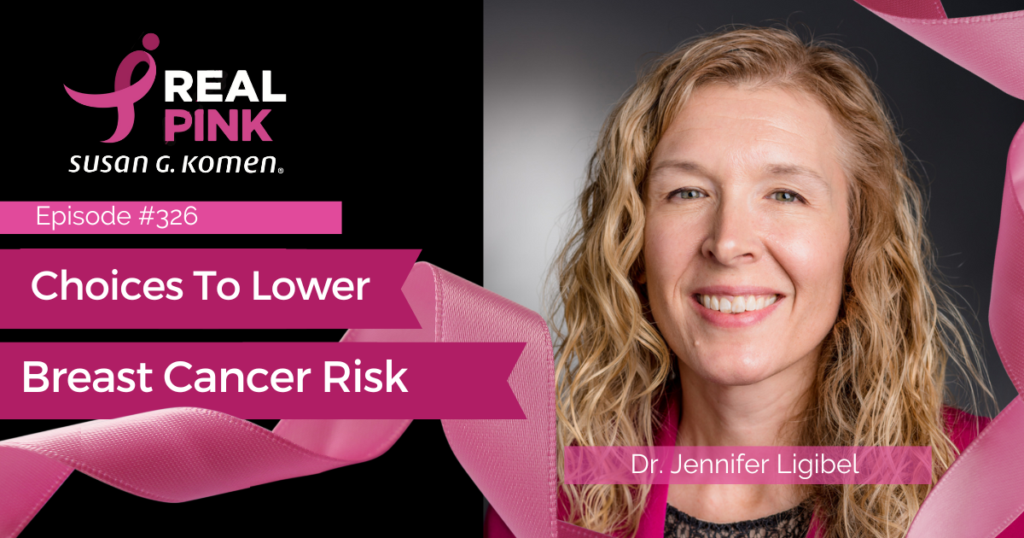Archive for April 2025
Know Your Risk, Change Your Future
What if one call could help change not just your future, but your family’s too? In this episode of Real Pink, we’re joined by Fanny Jackson, a compassionate and experienced Komen Patient Navigator, who walks us through how she helps callers to the Komen Patient Care Center understand and access genetic counseling and testing.
Fanny shares how knowing your genetic risk for breast cancer—especially for those in Black, Latino and other underserved communities — can lead to earlier interventions, more personalized care and even save lives. We’ll also talk about the systemic barriers many people face in accessing these life-changing services, and how Fanny and the Komen Patient Care Cetner team work to break those barriers down, one conversation at a time.
Regaining Intimacy After Breast Cancer
If you’re struggling with issues affecting your sexuality, you’re not alone. Sex and intimacy can be difficult for many women after a breast cancer diagnosis. Joining us today is Amy Rowan, a Certified Clinical Sexologist and Intimacy Coach. She’s known as the Suburban Sexologist because she is just like so many of you – a busy, working mom and breast cancer survivor who just gets it. She makes talking about sex seem like the most comfortable thing in the world and she is here today to acknowledge just how hard intimacy after breast cancer can be and to give us some tips on how to deal with emotions and regain intimacy after treatment.
Read MoreReal Talk: Lifestyle & Breast Cancer Risk
Brett Heins went through breast cancer in her late 30s. Kristin Goodman was in her early 40s when she was diagnosed. Both women are well below the average age at diagnosis – 62 – leading them to wonder what caused their cancer to develop. A growing body of research shows lifestyle choices – everything from drinking alcohol to following a healthy diet – influences one’s risk of breast cancer.
Read MoreChoices To Lower Breast Cancer Risk
Everyone is at risk of breast cancer. Some are more at risk than others due to hereditary factors – such as a family history of cancers – and lifestyle choices that affect our overall health. Knowing your risk of breast cancer can help you decide what steps to take to lower your risk.
Joining me today is Dr. Jennifer Ligibel, a Susan G. Komen Scholar and Komen grantee, Professor of Medicine at Harvard Medical School, Senior Physician at the Dana-Farber Cancer Institute and an expert on the impact of lifestyle factors, cancer risk and outcomes. Through more than a dozen lifestyle intervention trials, Dr. Ligibel has evaluated the impact of exercise, weight loss, fitness, body composition and quality of life in cancer patients and survivors.




